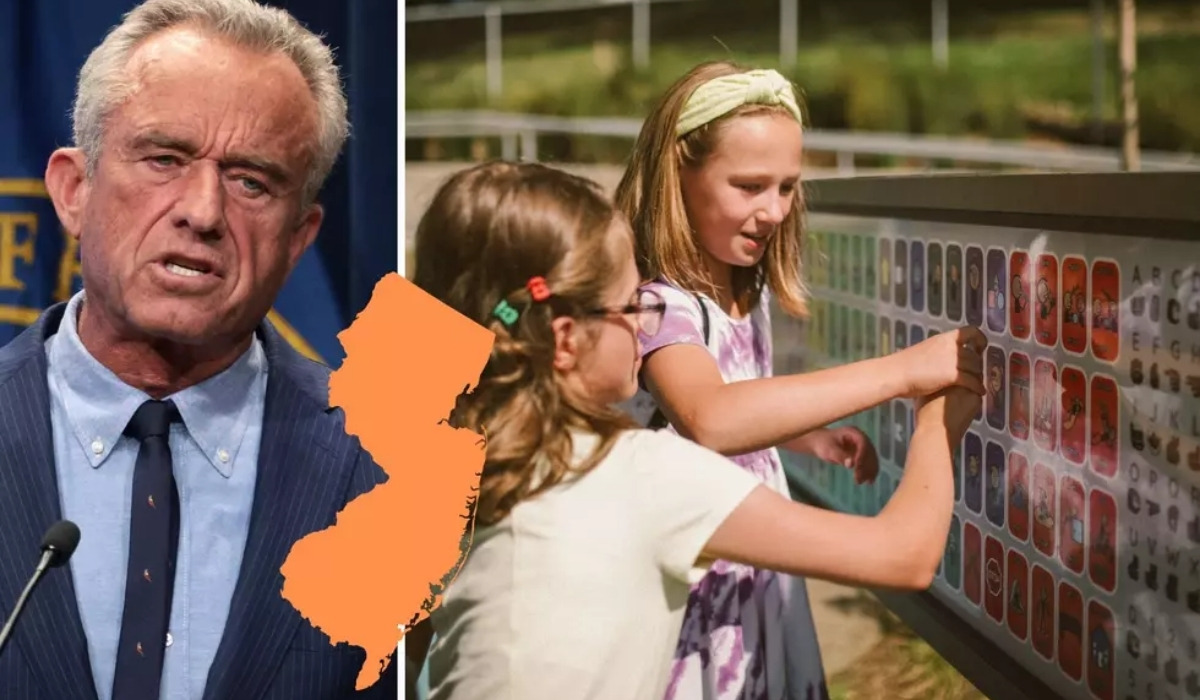On top of the usual volume of concerns for families living with autism, recent federal announcements have stoked additional questions and uncertainty. Families already navigating the challenges of care, education, and advocacy for their children are now faced with shifting public narratives and policy changes that could affect how support is delivered.
The national rate of children identified with Autism Spectrum Disorder is 1 in 31 children, according to the most recent data from the Centers for Disease Control and Prevention. That figure has continued to rise over the years, underscoring the growing need for more research, services, and understanding from the broader public.
New Jersey continues to have one of the nation’s highest rates of autism, 1 in 29 children. That works out to be roughly 3.5% of all 8-year-old children living in the state, based on records that were used to guide the statistic. Advocates and professionals in the field note that this high prevalence also reflects the state’s strong diagnostic practices and heightened awareness, but it also means a higher demand for essential resources like therapy, education support, and autism support services.
Last month, U.S. Health and Human Services Secretary Robert F. Kennedy Jr. made headlines as he vowed to launch a “massive testing and research effort” to find the causes of autism by September.
The emotionally charged comments drew a range of reactions in New Jersey. For some, the announcement was seen as a hopeful step toward better understanding and resources. For others, especially those within the neurodiverse community, the rhetoric struck a nerve.
Some individuals with autism bristle at the idea that they are not thought of as contributing members of society. That sentiment reflects ongoing concerns among self-advocates who want society to see their value beyond any diagnosis or perceived limitations.
There are also caretakers of New Jerseyans with profound autism, many who need considerable physical support and help, who felt “seen” by the description of their reality. For these families, a greater national focus on the challenges they face daily is welcomed, as it could lead to increased support and funding.
At the same time that Kennedy vowed to focus on autism, federal funding cuts across several departments have left autism research and support programs very vulnerable, Time reported. This contradiction has left many parents, caregivers, and providers feeling unsure about the future of services and initiatives that millions of families rely on.
An overwhelming amount of evidence points to a genetic cause for autism, according to the Autism Science Foundation, which responded to RFK’s comments on the CDC prevalence study findings. Experts emphasize the importance of understanding the complex interplay of genetic and environmental factors rather than simplifying autism to one definitive cause.
In about 20% of autism cases, one genetic variant can explain autism features. This statistic illustrates how multifaceted autism is as a condition—and how difficult it is to generalize or find a single explanation that accounts for all cases.
Autism New Jersey has been working to bridge the gap between what is publicly known about potential causes of autism and the most recent evidence-based research. The organization has long championed educational initiatives to help families, professionals, and the general public better understand autism beyond the headlines.
A free three-part webinar series, “The Complex Causes of Autism,” will involve three Rutgers University professors, helping to make their research accessible to non-scientists. The series is part of a broader effort to make research digestible and actionable for everyday families and individuals affected by autism.
The researchers are expected to focus on the following potential factors in autism causes:
- Gene mutations, like Fragile X syndrome which leads to a lack of a crucial protein
- Prenatal environment, including drug interactions and air pollution
- Variations in brain shape, functioning, and connectivity
These discussions aim to present autism as a neurological difference rooted in biology rather than misinformed theories or outdated assumptions. The goal is to empower the community with knowledge and encourage informed participation in scientific studies.
By summarizing the most recent research, the goal is to inform the autism community, who then might be more likely to participate in studies and have their voices heard in research protocols, Autism New Jersey Executive Director Suzanne Buchanan said in an interview with NJ 101.5.
She also said that there is no better time than right now to reach out to your congressional representative and share your story about what services you rely on and how challenging day-to-day life would become if those services were to go away.
“Phone calls work a lot better than online petitions,” Buchanan continued, adding that anyone looking for some help and guidance ensuring that their story is as compelling and concise as possible can call their helpline, 800-4-AUTISM.
As the conversation around autism continues to grow on both state and national levels, families and individuals affected by the condition are reminded that their experiences and voices matter. While politics and research evolve, the daily needs of the autism community remain urgent—and the collective effort to advocate, educate, and support one another is more crucial than ever.
Get the Personalized Support Your Child Deserves Today
Every child deserves the chance to thrive with compassionate, effective care. At Golden Care Therapy, we’re proud to offer families expert guidance and support through personalized ABA therapy in New Jersey. Our experienced team tailors each program to meet your child’s unique needs and goals, helping them build critical life and communication skills.
We work closely with families to ensure progress at every step, always prioritizing your child’s growth and success. Whether you’re just starting your journey or looking for a better fit, reach out today and discover how we can make a difference together.



